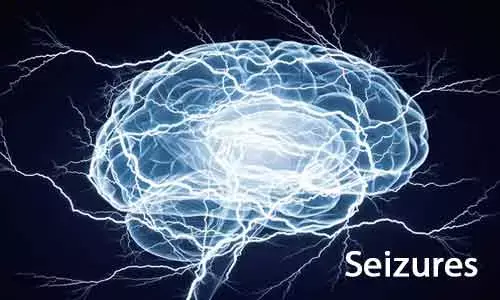- Home
- Medical news & Guidelines
- Anesthesiology
- Cardiology and CTVS
- Critical Care
- Dentistry
- Dermatology
- Diabetes and Endocrinology
- ENT
- Gastroenterology
- Medicine
- Nephrology
- Neurology
- Obstretics-Gynaecology
- Oncology
- Ophthalmology
- Orthopaedics
- Pediatrics-Neonatology
- Psychiatry
- Pulmonology
- Radiology
- Surgery
- Urology
- Laboratory Medicine
- Diet
- Nursing
- Paramedical
- Physiotherapy
- Health news
- Fact Check
- Bone Health Fact Check
- Brain Health Fact Check
- Cancer Related Fact Check
- Child Care Fact Check
- Dental and oral health fact check
- Diabetes and metabolic health fact check
- Diet and Nutrition Fact Check
- Eye and ENT Care Fact Check
- Fitness fact check
- Gut health fact check
- Heart health fact check
- Kidney health fact check
- Medical education fact check
- Men's health fact check
- Respiratory fact check
- Skin and hair care fact check
- Vaccine and Immunization fact check
- Women's health fact check
- AYUSH
- State News
- Andaman and Nicobar Islands
- Andhra Pradesh
- Arunachal Pradesh
- Assam
- Bihar
- Chandigarh
- Chattisgarh
- Dadra and Nagar Haveli
- Daman and Diu
- Delhi
- Goa
- Gujarat
- Haryana
- Himachal Pradesh
- Jammu & Kashmir
- Jharkhand
- Karnataka
- Kerala
- Ladakh
- Lakshadweep
- Madhya Pradesh
- Maharashtra
- Manipur
- Meghalaya
- Mizoram
- Nagaland
- Odisha
- Puducherry
- Punjab
- Rajasthan
- Sikkim
- Tamil Nadu
- Telangana
- Tripura
- Uttar Pradesh
- Uttrakhand
- West Bengal
- Medical Education
- Industry
Febrile convulsions after Vaccination Do Not Affect Development, Behavior: Study

MINNEAPOLIS – Researchers have found in a new study that Children who experienced febrile seizures after vaccination were not at an increased risk for developmental or behavioral problems.The new study has been published in online issue of Neurology®, the medical journal of the American Academy of Neurology.
A seizure associated with a fever is called a febrile seizure. Now a new study has found there is no difference in developmental and behavioral outcomes for children who have febrile seizures after vaccination, children who have febrile seizures not associated with vaccination and children who have never had a seizure. Febrile seizures are also known as febrile convulsions.
"This is reassuring news for parents," said study author Lucy Deng, MBBS, of the National Centre for Immunisation Research and Surveillance (NCIRS) in Sydney, Australia. "A febrile seizure can occur following vaccination and understandably can be quite distressing to parents. It can also cause parents to lose confidence in future vaccinations. Now, parents will be relieved to hear that having a febrile seizure following vaccination does not affect the child's development."
The study compared 62 children who had a fever-associated seizure within two weeks after a vaccination with 70 children who had a fever-associated seizure from another cause and 90 children without a history of seizures. All of the children who had seizures were younger than 2-1/2 years old at the time of the seizure.
The children's cognitive, motor and language functions were tested by certified developmental assessors who did not know the child's seizure history. Their behavior was also assessed through questionnaires completed by their parents. The children with seizures were tested within one to two years after the seizure.
The researchers found no differences in development, thinking skills or behavior between the children who had febrile seizures following a vaccination and those who had febrile seizures at other times or those who never had a seizure.
"At a time when there is a global resurgence of measles and new diseases are emerging, our findings are particularly important in reassuring parents and providers on the safety of vaccines," Deng said.
Deng also pointed out that several other factors were not associated with having developmental problems: fever-associated seizures before the age of one; a febrile seizure lasting for more than 15 minutes; or more fever-associated seizures after the first seizure.
Limitations of the study include a relatively small number of participants. Also, further studies should follow children for longer periods of time.
The study was supported by the Australian National Health and Medical Research Council.
Learn more about febrile seizures at BrainandLife.org, home of the American Academy of Neurology's free patient and caregiver magazine focused on the intersection of neurologic disease and brain health. Follow Brain & Life® on Facebook, Twitter and Instagram.
When posting to social media channels about this research, we encourage you to use the hashtags #Neurology and #AANscience.
The American Academy of Neurology is the world's largest association of neurologists and neuroscience professionals, with over 36,000 members. The AAN is dedicated to promoting the highest quality patient-centered neurologic care. A neurologist is a doctor with specialized training in diagnosing, treating and managing disorders of the brain and nervous system such as Alzheimer's disease, stroke, migraine, multiple sclerosis, concussion, Parkinson's disease and epilepsy.
For more details click on the link: https://doi.org/10.1212/WNL.0000000000009876
Hina Zahid Joined Medical Dialogue in 2017 with a passion to work as a Reporter. She coordinates with various national and international journals and association and covers all the stories related to Medical guidelines, Medical Journals, rare medical surgeries as well as all the updates in the medical field. Email: editorial@medicaldialogues.in. Contact no. 011-43720751
Dr Kamal Kant Kohli-MBBS, DTCD- a chest specialist with more than 30 years of practice and a flair for writing clinical articles, Dr Kamal Kant Kohli joined Medical Dialogues as a Chief Editor of Medical News. Besides writing articles, as an editor, he proofreads and verifies all the medical content published on Medical Dialogues including those coming from journals, studies,medical conferences,guidelines etc. Email: drkohli@medicaldialogues.in. Contact no. 011-43720751


